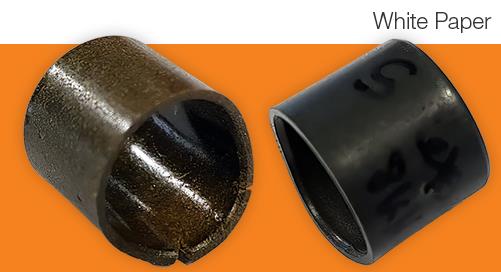The Pros and Cons of Plastic Bearings
Plastics have come a long way since they were invented over a century ago. But that does not mean they should be used in every application. In this short article, we will go through a few pros and cons of plastic bearings to help guide you towards an appropriate solution.
Cons: When NOT to Use Plastic Bearings
1. Extreme load capacities
It may not surprise you that plastics top out at a certain point in terms of load capacity compared to metals. Where that line is drawn though, may surprise you. Some plastic bearings can handle loads of up to 1,200kg -- the weight of a small car. As loads become more extreme, metals become more appropriate. Metal bearings can handle PVs (pressure velocity values, psi x fpm) of up to 3,000,000.
2. Consistent extreme temperatures
Although plastic bearings can function well at nearly 500 degrees Fahrenheit in short term spurts, plastic bearings cannot handle extreme temperatures over consistent, long-term operation. Metals, on the other hand, can handle thousands of degrees Fahrenheit above zero and can operate under many hundreds of degrees below zero.
3. High RPM
Plastic bearings can withstand the following combinations: low speed, high load and high speed, low load. Unfortunately, at about 500 rpm, plastic bearings are no longer able to maintain form. Metals fare much better at these high speeds.
Pros: When Plastic Bearings Are the Better Option
1. Edge Loads
Plastics being more flexible in nature can handle edge loads well. Where a metal might shatter on a certain edge load, plastic bearings would hold strong. This same flexibility can be a weakness, however, if precision is required. Metal bearings can manage a level of precision that plastics cannot.
2. Self-Lubricating, Maintenance-Free Operation
Plastic bearings can be made with solid lubricants embedded within. For these bearings, additional greasing is not required, decreasing maintenance and cost over time. Without dripping grease as an accompanying factor, food hygiene and safety can be ensured as well. Lastly, because these bearings are made of plastic, they do not corrode over time.
3. Weight Reduction
Plastics are lighter than their metal counterparts. This quality can be advantageous in certain industries, such as auto and airline, where differences in weight of even a gram can matter.
igus® makes over 60 different varieties of plastic bearings. To find out how one (or more) of these bearings could work for you, please feel free to visit us at www.igus.com.
Photo: “Ball Bearing / Rillenkugellager” by Solaris2006, licensed under Attribution-ShareAlike 3.0 Unported (CC BY-SA 3.0)




